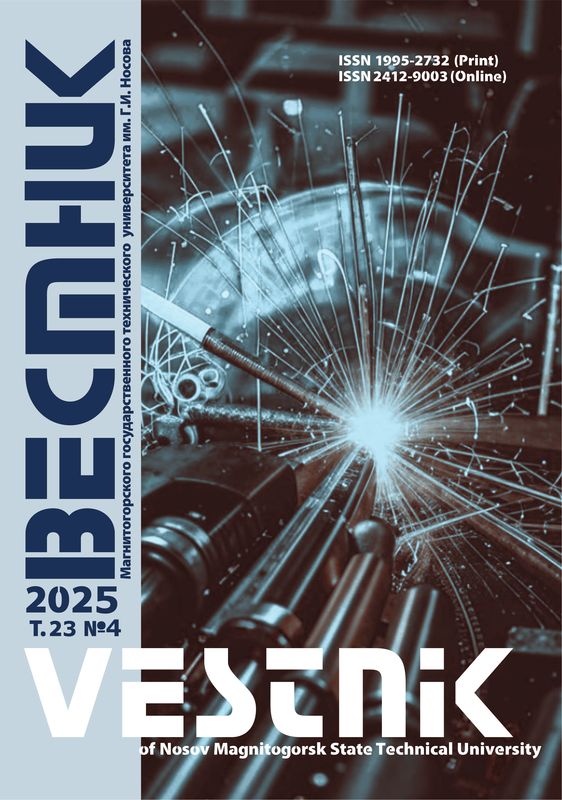Abstract
Plastic spools that are used in metalware industry for reeling wires have flanges that are lacking in strength. Flange failures can occur as a result of wire pressure during reeling or accidental mechanical and thermal impacts during transportation and storage of spools with installed wire. Radial and ring stiffeners are normally used to strengthen the flanges. Radial and tangential stresses are traditionally believed to be the greatest (main) stresses that occur in the flanges due to the symmetry of the spool and the installed wire. Therefore, the flange stiffeners are currently designed as radial and ring stiffeners. The authors suggested that the main stresses might occur at an angle to the spool flange radius. Correspondingly, the aim of this research was to understand how the stresses tend to change at different points of the flange subjected to a variety of external loads. For analysis, the authors used some previously obtained formulas for calculating the stress state at different points of the spool flange, which is basically a thin rigid circular plate. With the help of the MathCad 15 package, the authors calculated the Mr and Mθ values and the normal stresses – i.e. radial σr and tangential σθ stresses – caused by the above moments. The following scientific results were generated through visualization of the obtained dependences as graphs: It was found that the normal circumferential stresses arising in the flange as a circular plate can have an extremum depending on the type and intensity of the load and the flange fitting; the authors explain why this is so. The main outcome of this research was a proposal to use additional stiffeners on the outboard side of the coil flange accounting for possible directions of the main stresses occurring at an angle to the radial and ring stiffeners.
Keywords
Plastic spool; spool components; flexible circular plate; maximum stresses; elastic deformations.
1. Spule aus Kunststoff mit durch Rippen verstärkten umrandettn Flanchen/Nordroht Kunststoff Rönchen undspritzguβwerk/H. Zeigmeister K.G. Patent FRG 1187451. Declared 25/08/61; Published 30.06.66.
2. W.W. Burhop. Plastic spool of complementary halves Patent USA 3334841. No. 896963; Published 8.08.67. hand written review.
3. Winding coil. Gewka nowoiova/ Kubiak Edmund, Basinski Tadeusz; Pat. 112520 Poland. Declared 06.02.78; No. 204490; Published 15.03.82.
4. Pat. BY 3997 Republic of Belarus, MPK (2006) B65P 75/18/Sverzh А.А. Declared 04.12.07, No. 20070276, Published 30.10.07.
5. Konev S.V., Mikhaylets V.F., Teftelev I.E. Defining the optimum size of the plastic spool for welding wire. Tekhnicheskie i fiziko-matematicheskie nauki: sb. st. po materialam VII mezhdunar. nauch.-prakt. konf. # 6(7) [Engineering and physical and mathematical sciences: Proceedings of the VII International Conference no. 6(7). Moscow: MTsNO, 2017, pp. 13-20.
6. Konev S.V., Mikhaylets V.F., Teftelev I.E. The problem about the strength of a plastic spool with uneven flange loads. Kachestvo v obrabotke materialov [Quality in materials processing], 2017, no. 2 (8), pp. 42-45
7. Constructive ways to increase rigidity. Available at: http://inzhener-info.ru/razdely/konstruirovanie/zhestkost-konstruktsij/konstruktivnye-sposoby-povysheniya-zhestkosti.html
8. Filin А.P. Prikladnaya mekhanika tverdogo deformiruemogo tela. T.1 [Applied mechanics of solid deformable body. Vol.1]. Nauka, Мoscow, 1975, 397 p.
9. Darkov A.V., Shpiro G.S. Soprotivlenie materialov: uchebnik dlya studentov vysshykh uchebnykh zavedeniy [Strength of materials: Textbook for university students]. Мoscow: Vysshaya shkola, 1989, 624 p.












